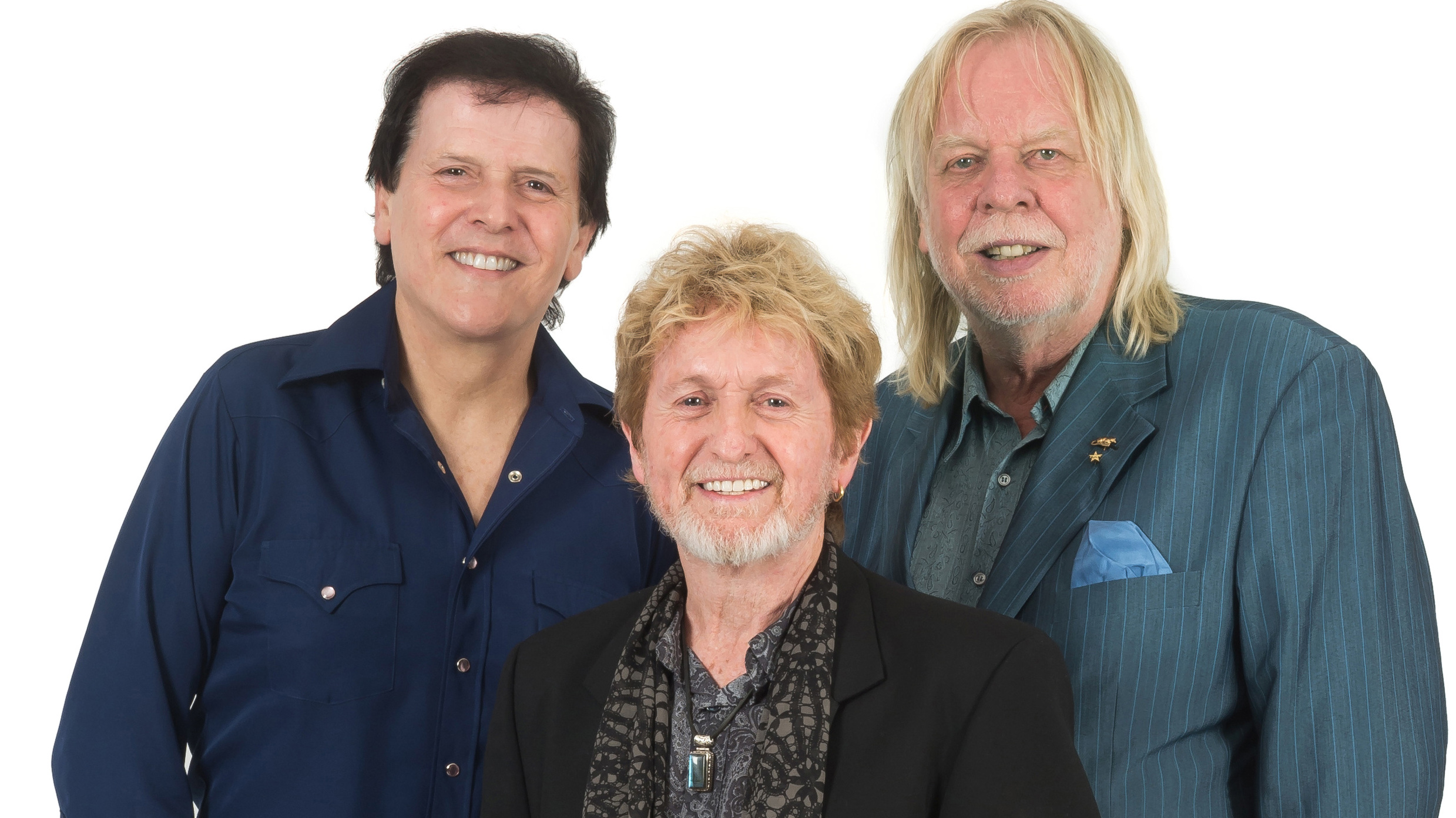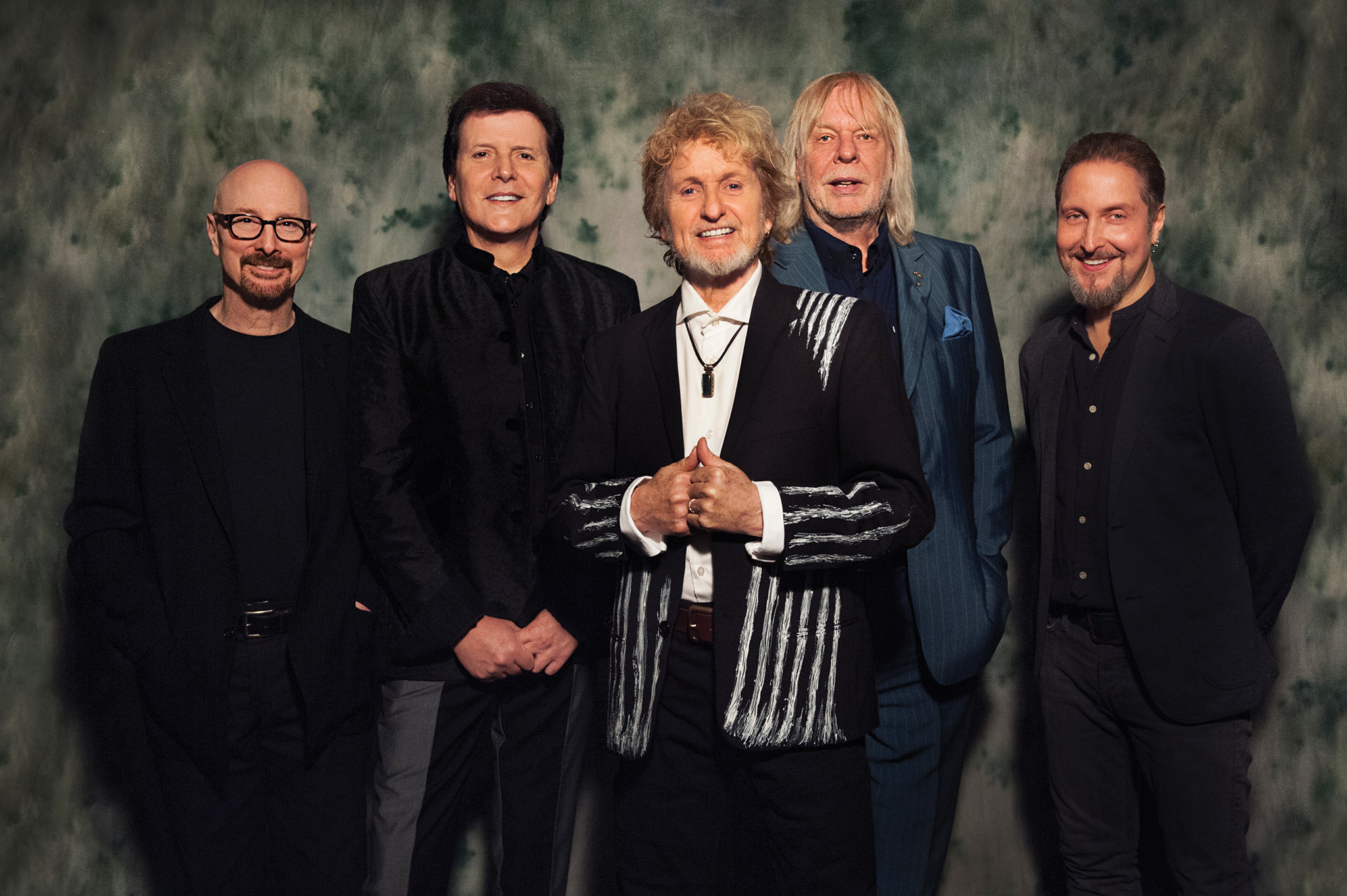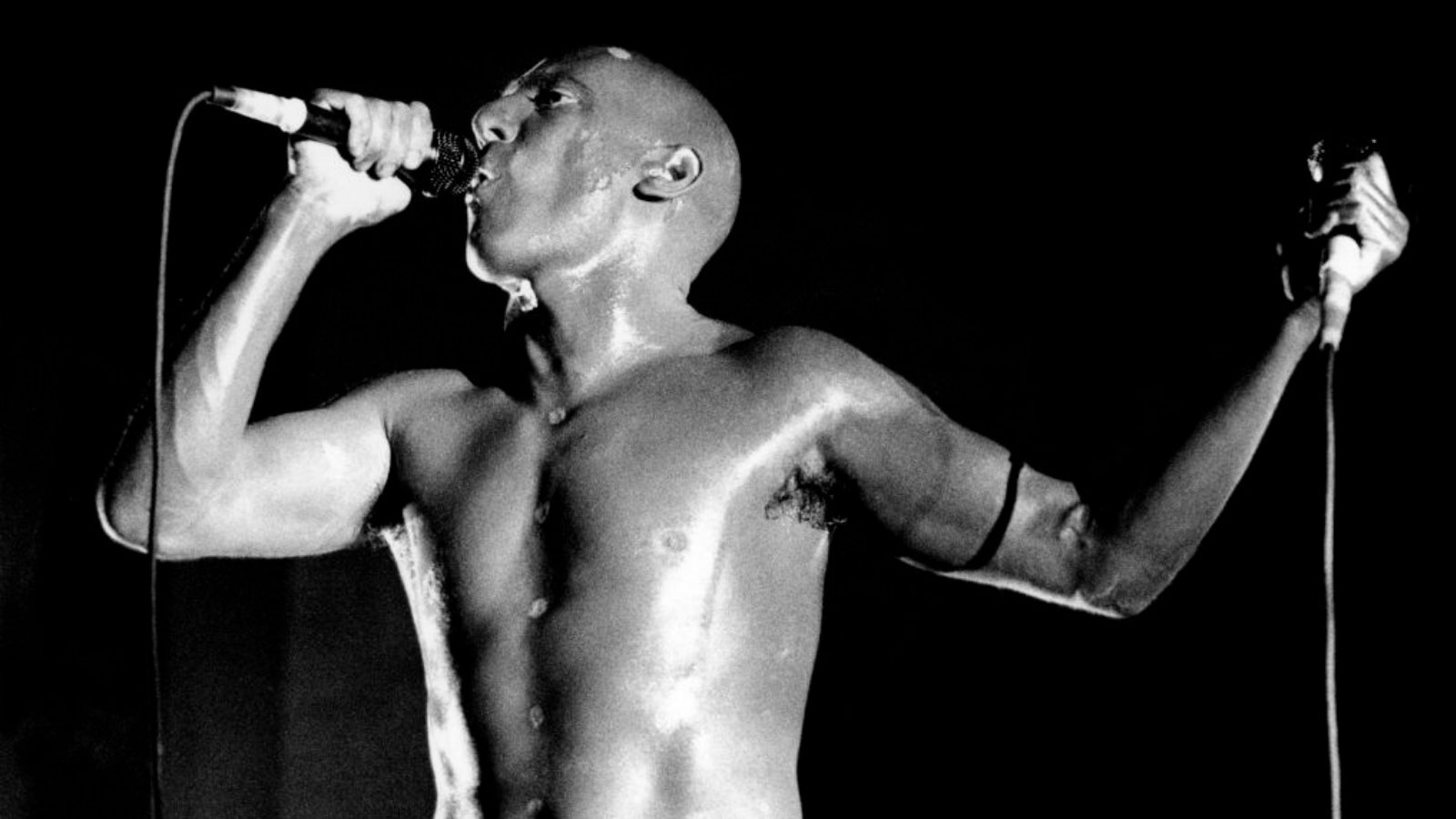Anderson, Rabin and Wakeman: the inside story behind this year's biggest reunion
Yes fans everywhere have been anticipating Anderson, Rabin & Wakeman, featuring Jon Anderson, Trevor Rabin and Rick Wakeman, who are touring for the first time since 1990. So, what's in store

“This is the best band line-up I have ever been in.”
Rick Wakeman is certain in his belief of the potential of Anderson, Rabin & Wakeman.
“Honestly, when it comes to Yes-associated bands, I’ve never been involved with anything so good. And one of the reasons is that this has become a genuine band. It’s not just about Jon, Trevor and me. Getting in Lee Pomeroy on bass and Louis Molina III on drums has made this a complete band. We’ll all be travelling together. The three of us will be in a limo, and Lee and Lou will be in a caravan behind us…”
“But we will wave at them occasionally, to make them feel part of it all!” chips in Rabin.
Wakeman and Rabin have an infectious excitement concerning what’s about to happen. And bringing this project to fruition has taken a very long gestation period.
“A big problem has been that I’ve been constantly offered soundtrack work,” admits Rabin. “Just when I thought I had free time for the band, my agent would call up and say that there was yet more movie music work on the table…”
“But it wasn’t just Trevor’s schedule that was difficult,” adds Wakeman. “Jon and I were also busy. So it dragged on.”
Sign up below to get the latest from Prog, plus exclusive special offers, direct to your inbox!
In the end, the catalyst for getting the trio to push forward was a sad event in 2015.
“When Chris Squire died in June, it made us stop and think,” sighs Wakeman. “We all realised that time wasn’t on our side, and we had to make the effort to get this off the ground, before it was too late.”
“Jon and I both live in California,” says Rabin. “So we got together to start working out what we wanted to do musically. Then Rick came out…”
“Erm, that’s not ‘coming out’ in any sense other than joining them in rehearsals!” quips Wakeman with a laugh.
Both agree that it was finding the right rhythm section that ensured the band began to take a firm shape. From Wakeman’s perspective, there was only ever one choice to play bass.
“I’ve been working with Lee for a long time, and he is brilliant. More than that, he has a remarkable recollection of how every Yes song should be played. When he first joined my band in the late 80s, we were in rehearsals somewhere in Glastonbury, and at the end of it he politely pointed out that in Starship Trooper I had gotten the middle part wrong. Obviously knowing, or so I thought, the material much better than him I completely disagreed. To prove it, we went and listened to the original recording. And when we got to the contentious bit, I turned to him and said, ‘There you
are, I told you I got it… oh. You’re right!’ So I asked him if there was anything else we’d gotten wrong, and he highlighted a few other mistakes. We call him The Oracle. I am sure when he has sex, he’s thinking of a Yes track!
“Lee is a huge Chris Squire fan. You should have seen his reaction when I introduced him to Chris. He was so in awe of him that he couldn’t talk. But Chris was really friendly, which was great, because the last thing you want to do is meet your idol and find out they’re an arse. For me, he is not only the natural successor to Chris, but he’s taken it all to another level.”
The addition of Lou Molina III has given ARW a powerful rhythm section.
“I knew Lou was the drummer we needed,” insists Rabin. “The only thing was whether he and Lee could work together…”
“But as soon as we saw how the two of them gelled as a team, I turned to Jon and Trevor and said, ‘I think we’ve just become a proper band,’” says Wakeman. “It might be called Anderson, Rabin & Wakeman, but the others are an equal part of what we’re doing. And I have to thank Lee for bringing the average age of the band down. To just 62.2.”
“They’re not hired hands,” attests Rabin, “but a crucial part of what we’re setting out to do.”

For Wakeman, one of the biggest joys of the Anderson, Rabin & Wakeman project coming together is seeing Jon Anderson fronting the band.
“From the first rehearsal, it felt Jon was back where he belonged. He’s singing superbly. Even though he’s only got one leg these days! And he’s so happy.”
What the band are doing is not so much reinventing the Yes catalogue as celebrating the music in their own style.
“Our live set is based around the material the three of us did with the band,” explains Wakeman. “Now, we’re not playing it strictly as people will remember it from the old days, but we’re adding our own twists as we go along. We’ve moved it on, and things will certainly sound different. However, I feel fans will be excited with our interpretation.”
“We want this to be a celebration of what Yes have done,” says Rabin. “The intention is not to change things so much that it’s unrecognisable. And we’re having so much fun in working it all out.”
While the Yes songs will be the main thrust for ARW’s live set, this isn’t exactly a high-grade Yes tribute band. “Certainly not,” laughs Wakeman. “We will also put in elements from all of our independent careers. However, the core of what we’ll do will be the Yes material. And it seems this is something people really want to hear. Ticket sales for our North American and European tours have been great.”
From the outside, there might seem to be a possibility of conflict as Yes are still very much an active band. So, the fact that ARW have suddenly hovered into view could be construed as a direct challenge to them, given who is involved with the latter. However, neither Wakeman nor Rabin see this as likely to become a battle for control of the Yes legacy. Indeed, they’re at pains to be carefully diplomatic about the situation. “What matters is that the music of Yes should be performed live, no matter who by,” says Wakeman. “The importance of what the band have done down the decades demands that it continues to be played live, and that younger people can appreciate the amazing music. So ARW, in our own way, will certainly be emphasising just how much the songs mean to us, and should mean to everyone. And if there’s another band out there also making sure the music is being played then that’s even better.”
“There’s no problem at all between us and Yes,” adds Rabin. “We wish them all the best. It’s not like we see them as rivals, or vice versa. Also, let’s not forget that in the classical world there are a lot of different orchestras who are performing the works of the great composers. Nobody suggests there should be only one doing that. The more ways there are that we can ensure the greatness of Yes is underlined then the better it is for what really matters – and that’s the continuation of the heritage.”
Wakeman goes further on the matter: “Why shouldn’t generations to come be able to listen to these songs being played live? Long after we’ve gone, and also the guys in Yes, I’d like to think what we recorded all those years ago will inspire musicians to carry on playing it. So, now we have Yes and ARW – that’s double the pleasure, not double the trouble.”
But this band will not just be about maintaining the profile of their Yes years. There are plans for new songs to be written and released further down the line.
“We’re in no hurry,” reveals Wakeman. “It’s a case of taking things one step at a time. But all of us, and that means the entire band, view this as being a long-term project. The first move was to get out and tour. Just to test the waters and see what reaction we get. There won’t be any new songs included in the set. This is not the time to introduce new material.”
“We are working on songs, though,” interjects Rabin. “Jon and I have been exchanging some ideas…”
“Those two have so much ability that what they’ve come up with so far is really exciting,” believes Wakeman. “I’m just there to add in a little keyboard tinkle here and there. But you can be sure that we are all committed to the band. This is seen as something to last several years, if our health holds!”
The plan is for the band to get together songs for a new album as soon as this tour finishes. And it’s clear from the way Rabin and Wakeman are approaching things and they believe exciting times lie ahead. The pair clearly get on well.
“We really enjoyed working together on that Union tour in 1991/’92,” says Rabin. “And we always had the understanding we’d one day hook up again.”
“Ah, that tour,” smirks Wakeman, “The one I have always called ‘Onion’ because it made you want to cry! But we had a lot of fun out on the road back then. Trevor is such a huge talent that I’d be crazy not to work with him now. However, what he, Jon and I appreciate is that times have changed, and there’s no need for us to rush into anything.
“Record companies have been driving us mad about going into the studio and doing a new album. But Trevor hit the nail on the head when he said, ‘That would be doing things the wrong way round. We haven’t even gotten to know each other as yet.’ Once we have a tour behind us, then we will be a lot better, and that’s when we should be looking at an album.”
There will almost certainly also be a live release from ARW prior to any studio action. And Wakeman has a cunning plan, only part of which he’s prepared to divulge right now.
“For reasons I shan’t go into, I’d like us to film the show at Hammersmith in March,” he says. “That could be special, and by the time we get to this gig, we’ll have a lot of shows behind us, and will be ready. I also want to be a little different, and not just have the live performance, plus interviews. There has to be an extra dimension. Mind you, our stage show will be great. It’ll be the first time Changes has ever been performed where the entire band go through a costume change, and end up naked!”
Wakeman is very aware of the buzz the band have generated, and also of the burden of expectation.
“Ever since word first got out that we were working on getting this band together, I have had a steady stream of emails from people asking what was going on. I’ve even had messages from the guys in Black Sabbath via my son Adam (who’s Sabbath’s touring keyboard player) saying that I had to make sure this happens, because everyone’s genuinely excited about it. Well, let me tell you, nobody is more excited than me!
“We’re not doing this for the money. If that were all that mattered then we’d be in the studio already doing the album. And Trevor can make 10 times more than he’ll earn from ARW by doing soundtrack music. This means as much, if not more, to us, as it does to anybody else.”
Wakeman has one reason for knowing this band will triumph.
“Whenever we get together, we’re having so much fun that we can’t help but smile all the time. There have been no tense moments or disagreements. Someone recently told me that’s bound to happen. But why should it? All of us are just happy in each other’s company. And if that’s what we can project to the audience, then we’re all winners.”
See the ARW website for more information.
Malcolm Dome had an illustrious and celebrated career which stretched back to working for Record Mirror magazine in the late 70s and Metal Fury in the early 80s before joining Kerrang! at its launch in 1981. His first book, Encyclopedia Metallica, published in 1981, may have been the inspiration for the name of a certain band formed that same year. Dome is also credited with inventing the term "thrash metal" while writing about the Anthrax song Metal Thrashing Mad in 1984. With the launch of Classic Rock magazine in 1998 he became involved with that title, sister magazine Metal Hammer, and was a contributor to Prog magazine since its inception in 2009. He died in 2021.

